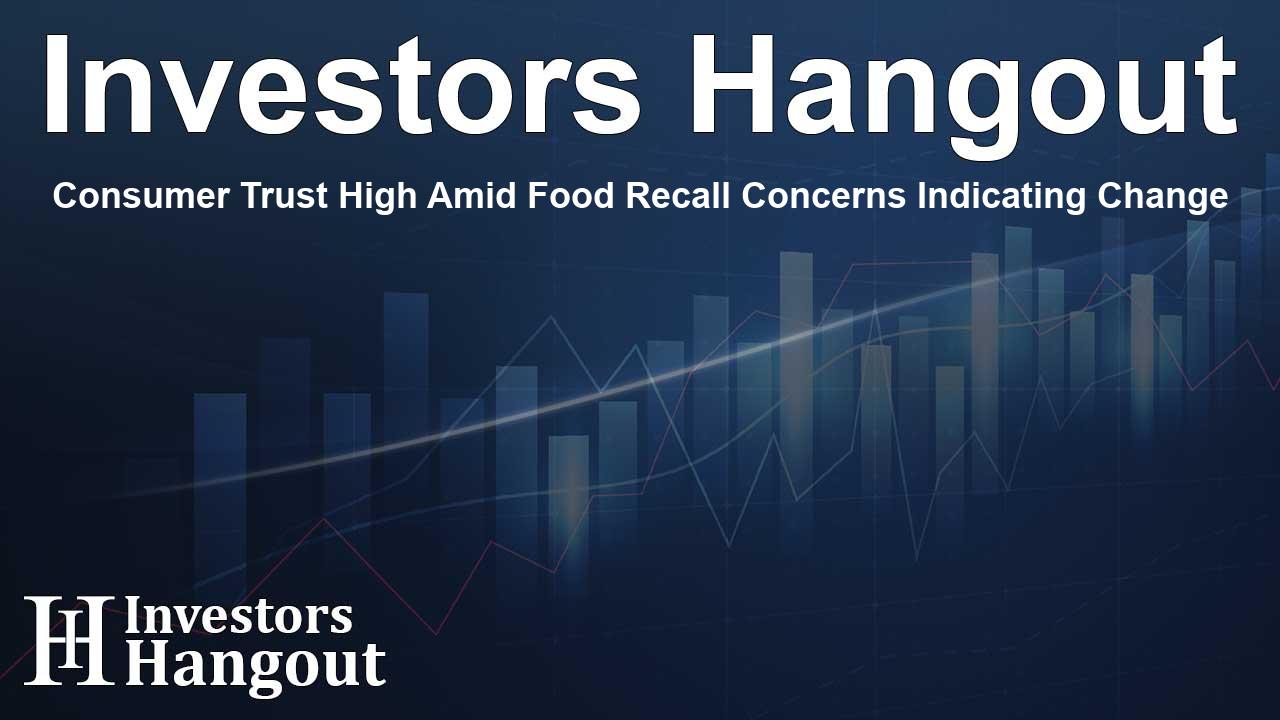Consumer Trust High Amid Food Recall Concerns Indicating Change

Consumer Sentiment Towards Food Recalls
In a recent survey conducted by GS1 US, compelling insights have emerged regarding American consumers' perceptions of food recalls. While a notable 85% of respondents assert that food recalls play a vital role in safeguarding public health, an overwhelming 93% express concerns about the frequency at which these recalls occur. This paradox highlights an evolving landscape in consumer behavior that warrants further exploration.
Impact of Food Recalls on Buying Decisions
Delving deeper into the data, we find that 60% of surveyed individuals have shunned entire food categories, such as salad greens, following a recall incident. Notably, a fascinating generational divide is evident here, as 65% of millennials and 64% of Gen Z members are more likely to hesitate in repurchasing specific products or brands after a recall, in contrast to just 53% of baby boomers displaying the same caution.
Precautionary Practices Post-Recall
An astounding 57% of consumers admit to discarding recalled products, even if their local area was not affected, a behavior most prominently demonstrated by millennials, with 70% opting to take this extra precaution. This tendency showcases a growing awareness and sensitivity around food safety, suggesting that consumers now prioritize health over product loyalty.
Advancements in Food Safety Regulations
Bob Carpenter, the president and CEO of GS1 US, commented on the significance of proactive food safety measures. Carpenter emphasized that the frequency of food recalls, while alarming to some, reflects a more robust food safety system that has benefited from technological advancements and evolving regulations. Enhanced tracking tools, adherence to updated barcoding standards, and strengthened traceability requirements now play critical roles in swiftly identifying and addressing affected products.
Understanding the FSMA Rule 204
One of the pivotal regulations shaping recall practices is FSMA Rule 204, established by the U.S. Food and Drug Administration (FDA) under the Food Safety Modernization Act. This rule aims to improve record-keeping and accountability for high-risk food items. The FDA has proposed extending the implementation deadline for this rule, which will enhance transparency and responsiveness in food recalls.
High-Risk Food Traceability
With stricter documentation demands for various foods commonly associated with recalls, such as leafy greens and shell eggs, the rule mandates that complete traceability data be available to the FDA within 24 hours. This functional change promises to expedite consumer safety responses in the face of potential health risks.
GS1 US Initiatives and Resources
In its commitment to keeping the food industry aligned with these new requirements, GS1 US is actively applying standards that improve visibility across supply chains. Their initiatives include providing critical resources and educational materials aimed at enhancing stakeholder understanding and compliance with FSMA Rule 204. This continuous education empowers businesses to better navigate the complexities of modern food safety protocols.
The Role of Stakeholder Engagement
To aid the food sector in adapting to these changes, GS1 US collaborates closely with industry representatives. Their resources encompass guidelines that outline best practices and facilitate compliance with evolving standards. By fostering a community of informed stakeholders, GS1 US supports companies in reinforcing food safety measures throughout their operations.
Conclusion
The latest survey results clearly demonstrate a notable shift in consumer behavior regarding food recalls. While there is a strong belief in the effectiveness of recalls to protect public health, rising apprehensions about their frequency cannot be ignored. It is essential for companies and consumers alike to adapt to these changes and pursue improved practices in food safety.
Frequently Asked Questions
What does the recent GS1 US survey reveal about consumer concerns?
The survey shows that while 85% of Americans believe food recalls are effective, 93% are worried about their frequency.
How do food recalls affect purchasing decisions among different generations?
Millennials and Gen Z are significantly more likely to avoid products after recalls compared to baby boomers, indicating shifting generational priorities.
What is FSMA Rule 204?
This rule enhances food safety regulations by introducing stricter record-keeping requirements and aims to improve traceability of high-risk food items.
Why do consumers discard recalled food even if not affected?
Many consumers, especially millennials, prefer to err on the side of caution, discarding recalled products to ensure their safety.
How is GS1 US helping the food industry improve safety practices?
GS1 US offers standards and resources to enhance supply chain visibility and training for stakeholders to comply with new food safety regulations.
About The Author
Contact Evelyn Baker privately here. Or send an email with ATTN: Evelyn Baker as the subject to contact@investorshangout.com.
About Investors Hangout
Investors Hangout is a leading online stock forum for financial discussion and learning, offering a wide range of free tools and resources. It draws in traders of all levels, who exchange market knowledge, investigate trading tactics, and keep an eye on industry developments in real time. Featuring financial articles, stock message boards, quotes, charts, company profiles, and live news updates. Through cooperative learning and a wealth of informational resources, it helps users from novices creating their first portfolios to experts honing their techniques. Join Investors Hangout today: https://investorshangout.com/
The content of this article is based on factual, publicly available information and does not represent legal, financial, or investment advice. Investors Hangout does not offer financial advice, and the author is not a licensed financial advisor. Consult a qualified advisor before making any financial or investment decisions based on this article. This article should not be considered advice to purchase, sell, or hold any securities or other investments. If any of the material provided here is inaccurate, please contact us for corrections.
